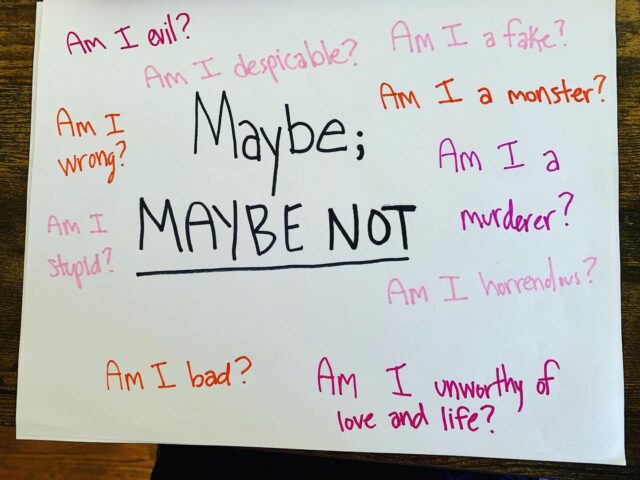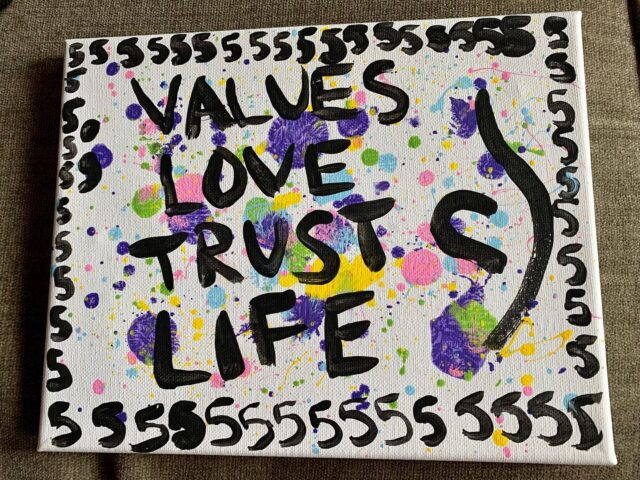Childhood Obsessive-Compulsive Disorder is a common illness that affects 1 out of every 200 children. This means that in your child’s school there are probably a handful of children who suffer from OCD. Why does OCD appear to be so rare in children and teens? This is because children and teens often feel shameful and embarrassed to talk about their obsessions and compulsions. Most children with OCD know that their thoughts and behaviors are different from other kids and fear that something is wrong with them. Keeping OCD a secret can lead kids to feel isolated, scared and alone. Many children want to know what is wrong but are too embarrassed to ask. If you suspect that your child may have OCD it is important to sit down and talk with them about their experience.
Treatment
Experts agree that Cognitive-Behavior Therapy (CBT) is the treatment of choice for children and adolescents with OCD. The type of CBT that is used to treat OCD is called Exposure and Response Prevention (ERP). Exposure and Response Prevention asks children to systematically face their fears without using rituals or compulsions. First, fears are put on “fear ladder” from order of least feared to most feared. Children are then taught to “boss back” OCD by doing the opposite of what “OCD wants.” OCD is externalized so kids learn the “I’m not my OCD” and they have a choice as to whether they listen to their OCD or bully it back and take charge. Exposure consists of having kids slowly face their fears without using rituals. By facing fears without compulsions kids learn that their worst fears are unlikely to come true and they gain confidence that they can be “in charge” of their life.
I suspect my child has OCD, what should I do??
Start educating yourself and learning all you can about OCD. A good place to start is by joining the International OCD Foundation (IOCDF). Make sure you join the organization so you have access to the newsletter. Consider attending the conference in July with your child or teen. It is a valuable experience where children and families can learn that they aren’t alone and that there is hope.
After joining the organization we recommend that you start reading one of the many excellent books available about childhood OCD and treatment. It is important that you understand OCD as well as learn how to be your child’s best advocate and coach. Many parents with anxious children try to help their child feel better through reassurance and protection. Unfortunately, reassuring your child and protecting them from contact with their fears only exacerbates OCD. It is important that you learn how to reduce your reassurance giving and help your child be courageous in facing their fears (some of which may make you anxious too!).
After educating yourself we recommend contacting a qualified child OCD therapist. It is important that you chose a Cognitive Behavioral Therapist (CBT) who is well trained in Exposure and Response Prevention (ERP) and has experience treating children. If you chose a therapist who is “BTTI” certified you are ensuring that the therapist has received training in ERP and is knowledgeable about OCD. (BTTI is an intensive training offered by the IOCDF). Sometimes it can be difficult to find a CBT therapist who specializes in childhood OCD. Don’t give up! If you have contacted everyone in your area and they and they are full ask to get on a wait list. At times wait lists can progress fairly quickly so don’t get discouraged.
Another option is to seek intensive treatment for your child. Many parents are concerned about the idea of “hospitalization,” however, intensive treatment for child OCD is similar to going away to an intensive sports camp. They are designed for children and are meant to give kids what they need in the fastest way possible. Most children who receive intensive treatment make rapid improvements and are happy with their experience.
Recommended Books
There are also many fantastic books that will educate you about OCD and how you can be an effective coach for your child
Freeing Your Child from Obsessive-Compulsive Disorder: A Powerful, Practical Program for Parents, Children and Adolescents by Tamar E. Chansky, Ph.D.
What to do When Your Child Has Obsessive-Compulsive Disorder: Strategies and Solutions by Aureen Pinto Wagner, Ph.D.
Talking Back to OCD by John S. March, MD
How do I talk to my child or teen about OCD?
You may worry that your child will become more anxious and alarmed if you talk to them about OCD. Some parents worry that by bringing their child to therapy the child will “start to think something is wrong with them.” Oftentimes this is not the case. Most kids with OCD know that something is wrong but they are too fearful or embarrassed to talk about it. Many adults with OCD developed OCD as children but never told anyone about it because of their fear that they “were the only one” or were “crazy.” Adults with childhood onset OCD often wished that someone has told them about OCD and let them know that nothing was wrong with them as a person. It can be a huge relief for a child to know that there is a name for what they are experiencing, they are not alone and that their is help available. Here are some books that can help parents and kids learn about OCD.
What to Do When Your Brain Gets Stuck: A Kids Guide to Overcoming OCD, by Dawn Huebner, Ph.D.
Up and Down the Worry Hill by Aureen Pinto Wagner, Ph.D.
Take Control of OCD: The Ultimate Guide for Kids With OCD by Bonnie Zucker, Psy.D.
Movies
Books for Teens
My Anxious Mind: A Teen’s Guide To Managing Anxiety and Panic
Talking Back to OCD: The Program That Helps Kids and Teens Say “No Way” — and Parents Say “Way to Go”
The Stress-Reduction Book for Teens: Mindfulness Skills to Help You Deal With Stress
Treatment is available in the San Francisco Bay Area. Offices are located in the East Bay including Oakland and Orinda. Serving Alameda County and Contra Costa County.





